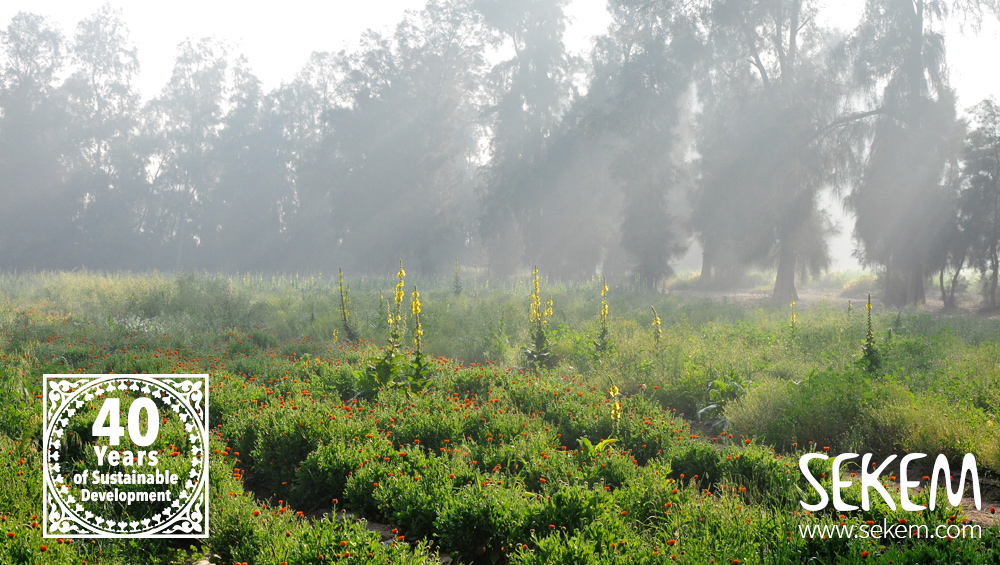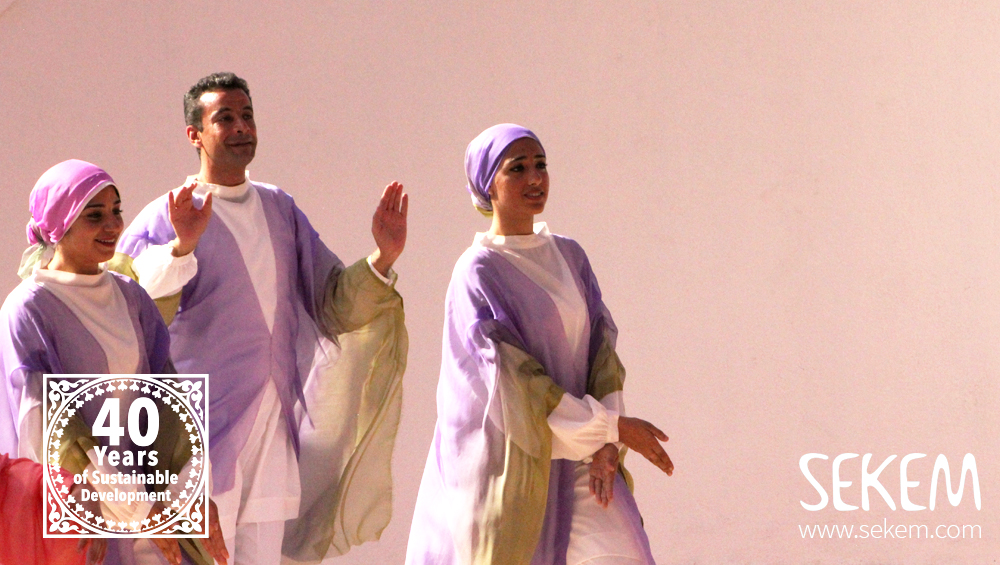Ibrahim Abouleish and Klaus Haid were connected by a longstanding friendship, rooted in the fact that the founder of SEKEM got to know important insights to Biodynamic agriculture at by the German farmer and lawyer. Klaus Haid could convince Ibrahim Abouleish that desert reclamation is possible by Biodynamic agricultural methods. After Ibrahim Abouleish’s earthly farewell in June 2017, Klaus Haid wrote down the following memories.
My friendship with Ibrahim Abouleish started more than 40 years ago when he did an internship at the German company Wala. In addition to my legal profession and in old family tradition, I had been owning a farm in Gailingen with riding stables, horse breeding and an agricultural area of about 30 hectares. As part of my connection to anthroposophy, of course, this was done according to biodynamic farming practices. The prescribed review for marketing biodynamic bread grain was done at that time by a legitimate advisor. He announced that he would come together with Ibrahim Abouleish, an Egyptian who is interested in my special farming methods, for his next consulting visit. When Ibrahim Abouleish came, he took full note of all operations, including the three-year composting process.
In this context, I showed him the renaturation of several hectares of former gravel quarrying areas. For me completely unexpected, Ibrahim Abouleish was extremely enthusiastic about this restoration method and he concluded that then the desert sand in Egypt could be renatured as well. This is, what he realized after his return to Egypt by starting the SEKEM Initiative and since then, he invited me for several visits – I was very happy to watch the development of the SEKEM Initiative in the following years.

As part of my travels to Egypt, Ibrahim Abouleish also arranged a visit to a mosque of Sufis in Alexandria. I was always interested in the dance practiced by the Sufis especially in regards to the connection the Eurythmie. I still remember my visit to the Sufi mosque in Alexandria very well as it is connected to a special incident. All the visitors were warmly greeted at the entrance oft he mosque by the responsible Imam, who hugged everyone at the doorstep and led them into the mosque, wearing the traditional floor-length white dress. Of course, I did not wear such a dress. When I stood in front of the door and opened my arms to greet the Imam, he pushed me back and shouted in English: „Are you a Christian or a Muslim?”
Of course, I could not and did not want to deny my Christianity. The following excuse came to my mind: “If you welcome me at the doorstep of your mosque and accompany me across this doorstep, I am a Muslim.”
Suddenly, his face started to shine. He hugged me warmly and led me across the doorstep by saying, and it was clearly understandable to all the others around: “And if you welcome me at the doorstep of your Christian church and lead me across the doorstep, I am a Christian!”
Such an honorable tolerance would be of high importance today in the struggle of the religions.
Klaus Haid
About Loans for Cows and Other Stories

